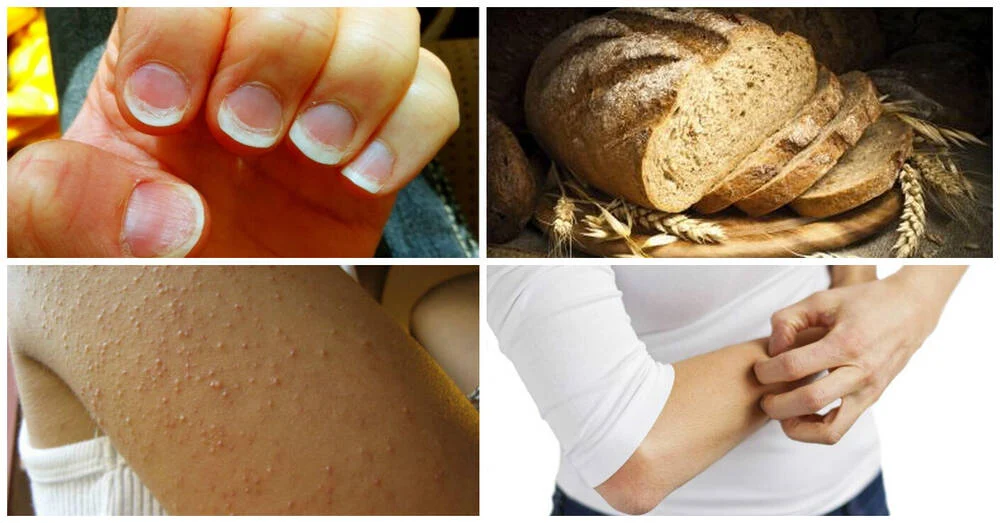Gluten is a protein found in wheat, barley, and rye. For individuals with Celiac Disease or gluten sensitivity, consuming gluten can trigger the immune system to attack the small intestine, damaging the intestinal lining and impairing nutrient absorption. Common symptoms include bloating, diarrhea, weight loss, fatigue, and anemia.
Understanding Celiac Disease
Celiac Disease is an autoimmune disorder that affects roughly 1% of people in Western countries. Genetics, gluten exposure, and environmental factors contribute to its development. While it is not contagious, it can run in families. Early diagnosis and awareness of symptoms are crucial for preventing long-term complications.
Signs and Symptoms in Adults
Adults with Celiac Disease may experience digestive symptoms like diarrhea, nausea, vomiting, abdominal pain, bloating, and constipation. Malabsorption of nutrients can also lead to anemia, fatigue, brittle bones, dental enamel damage, joint pain, skin rashes, headaches, and neurological issues such as numbness, tingling, or balance problems.
Signs and Symptoms in Children
Young children may show vomiting, diarrhea, poor appetite, muscle wasting, or a swollen abdomen (“pot belly”). Older children may present with delayed growth, short stature, delayed puberty, irritability, ADHD, learning difficulties, headaches, seizures, or lack of muscle coordination.
Dermatitis Herpetiformis – The Itchy Rash
Some individuals may not have digestive symptoms but instead develop dermatitis herpetiformis, a blistering, itchy rash typically found on elbows, knees, torso, scalp, or buttocks. This rash is directly linked to Celiac Disease and requires a gluten-free diet to manage.
When to See a Doctor
If you suspect gluten sensitivity or Celiac Disease, consult a healthcare professional for proper testing and diagnosis. Avoiding gluten before testing can lead to inaccurate results. A confirmed diagnosis allows for nutritional guidance and helps prevent deficiencies related to gluten-free diets.
Gluten-Free Diet: Trend vs. Necessity
While gluten-free diets have gained popularity, they are primarily beneficial for those with Celiac Disease or non-Celiac gluten sensitivity. People without these conditions may not experience significant health benefits and could risk nutrient deficiencies, especially in B vitamins and fiber.
Dr. Alessio Fasano, a leading gastroenterologist, explains, “A gluten-free diet is essential for those with Celiac Disease, but for most people, it offers no proven health benefits.”
Potential Risks of Going Gluten-Free Without Medical Need
- Reduced intake of fiber, leading to digestive issues.
- Possible deficiencies in fortified vitamins and minerals found in wheat products.
- Higher food costs due to specialized gluten-free products.
Conclusion
Understanding the role of gluten and recognizing the signs of Celiac Disease are vital for maintaining optimal health. Only those diagnosed or showing clear sensitivity should adopt a gluten-free diet. Consulting a healthcare provider ensures dietary changes are safe and nutritionally balanced.
FAQ – Gluten Awareness and Celiac Disease
What is gluten?
Gluten is a protein found in wheat, barley, and rye. For individuals with Celiac Disease or gluten sensitivity, consuming gluten can trigger immune reactions that damage the small intestine.
What are the symptoms of Celiac Disease in adults?
Adults may experience diarrhea, nausea, vomiting, abdominal pain, bloating, constipation, fatigue, anemia, brittle bones, joint pain, dental enamel damage, headaches, and neurological issues like numbness or tingling.
What are the signs of Celiac Disease in children?
Young children may have vomiting, diarrhea, poor appetite, muscle wasting, or swollen abdomen. Older children may show delayed growth, short stature, delayed puberty, irritability, ADHD, learning difficulties, headaches, seizures, or poor coordination.
What is dermatitis herpetiformis?
Dermatitis herpetiformis is a blistering, itchy rash associated with Celiac Disease, often appearing on elbows, knees, torso, scalp, or buttocks. It requires a gluten-free diet to manage.
When should I see a doctor regarding gluten sensitivity?
If you suspect gluten sensitivity or Celiac Disease, consult a healthcare professional for proper testing. Avoiding gluten before testing can lead to inaccurate results.
Is a gluten-free diet beneficial for everyone?
No. Gluten-free diets are primarily necessary for those with Celiac Disease or gluten sensitivity. People without these conditions may not gain significant health benefits and could risk nutrient deficiencies.
What are potential risks of going gluten-free without medical need?
Risks include reduced fiber intake, deficiencies in vitamins and minerals, and higher food costs due to specialized gluten-free products.

Comments